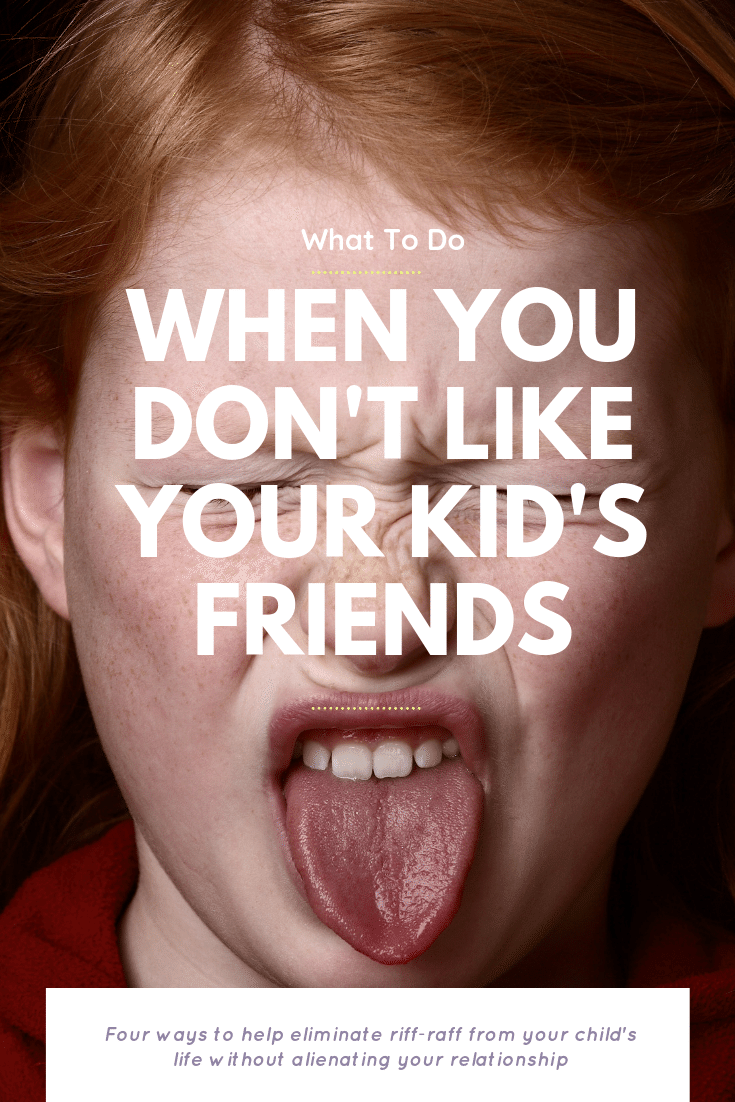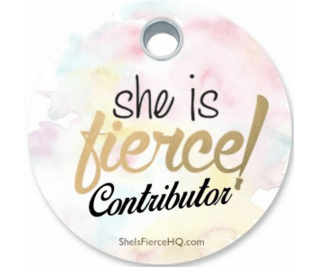Both my boys have all different types of friends - they don’t tend to run in just one circle. They both make friends very easily, and get along with pretty much anybody. Which is a great quality, I realize.
But the truth is, sometimes I just don’t like the kids they’re hanging out with.
Whether it’s because I think that one boy is a smartass or I don’t like hearing that filthy language coming out of his 11-year-old mouth when he’s on the phone with my sweet baby angel, who would never utter such venom, I am just not always a fan of the people my boys choose to surround themselves with.
But - unless my kid is putting himself in danger by hanging out with certain friends (and in that case, you better believe I’m stepping in immediately) - I don’t forbid them from doing so.
And you don’t want to forbid your kids from hanging out with kids you don’t like, either.
Well, you might want to.
But it isn’t a good idea.
Don’t Forbid The Friendship
A friend of mine recently said, “As long as my kids live in my house, I choose their friends.”
And I don’t disagree.
What I’m saying is this: don’t verbally, with your out-loud-voice, forbid them from hanging out with those friends.
Because - just like when you decide to cut out all sugar, and then someone places a day-old donut in front of you. You can see how unappealing it looks, with its dried out sugar, all chalky and craggly, but you still want it.
You want it because you can’t have it.
The same thing happens when you tell your kid he can’t hang out with that crusty, day-old friend. He wants to because you said not to.
No, it can’t be you who says it.
You want your child to see his friend’s faults for himself. To make up his own mind, which of course you’re going to be helping him make up, unbeknownst to him.
You’re basically going to be a master manipulator.
Listen. Don’t get all self-righteous on me. If you’re a mom, then don’t you dare act like you aren’t a master manipulator al-freakin-ready. This is for the good of your children. Now buck up and get down to business.
You’re going to be sending a combination of subtle and not-so-subtle messages to your child that will lead him to deciding that he doesn’t approve of that friend of his.
Your goal is to get into your kid’s head. To make them see the ugly side of that friend without having to come right out and say it.
And by “ugly side,” I’m talking about the kids who are a bad influence. The ones who don’t just make bad decisions, but push their friends to do the same.
And I’m talking about the kids who are attention-seeking in all the obnoxious ways that I don’t want my kid picking up.
And I’m also talking about the kids whose home situations are just not good, and it’s not their fault that they haven’t been taught how to behave, but that doesn’t make me want my kid hanging out with them.
I want my kids to be kind to everyone.
But I also want don’t want them to be besties with kids who act like maniacs. You’ve heard the saying that you are the average of your five closest friends? I don’t want the maniac one to factor into my son’s equation.
Do Not Bad-Mouth Your Child’s Friend
It’s important to note that I am not suggesting - nor do I condone - bad-mouthing your child’s friend (to your child. Bad-mouth them to your girlfriends till the cows come home). That’s the same as saying, “you are not to be friends with him any longer,” and it’s a dangerous move for your line of communication as your child grows older.
Besides, it’s what gossipy 15-year-olds do. That’s not appropriate behavior of a parent, so if you find yourself doing this, pull yourself together and cut it out.
There’s a far more passive-aggressive way to handle it.
Ask about the friend sometimes, to show your child you don’t necessarily hate the kid.
Meanwhile, try to get a read on how your kid is feeling about them. See if they’re still enamored by them.
Instead of talking about what a flake that one kid is, or how disrespectful the other one is, try the next technique instead. (Again, if the friend’s behavior is blatantly unacceptable, certainly deal with that head-on. These are suggestions for friends who you just know your kid is settling for, but that you know he could surround himself with so much better-suited friends).
Positive Reinforcement
I’ve found that laying compliments on thick for my son’s friends who are well-mannered, responsible, and kind, tends to be a successful tactic. This is part of those subliminal messages you’re sending to your kid’s brain, so he’ll start to feel that emotional reward deep inside his brain when he’s hanging around the “good” kids (the ones you like), and will eventually - God-willing - start to be turned off by the other kids.
Instead of discouraging play dates with the kid you don’t like, go out of your way to set up playdates with his friends that you do like.
The goal here is for you to help your child nourish those positive friendships, and - just like good, healthy grass squeezes out the weeds - your kid’s healthy relationships will leave no room for the unhealthy ones.
Have An Open Mind
My friend Jane, who is one of the smartest people I know, says that having “bad friends” and dealing with “those kids” is an important part of growing up and we don’t always need to swoop in and put a stop to them, as much as it kills us not to.
She says that these are learning experiences that teach our kids to form their own opinions about what they find acceptable and unacceptable, and it helps them learn to set boundaries for themselves.
The caveat, of course, as mentioned above, is when your child is in a dangerous relationship.
Listen to your gut on this. Ask questions about your kid’s friends. Moms can pick up on the very slightest detail being off, if we’ll just listen.
Listen to our kids and listen to our gut.
If you sense danger, step in. Set your own boundaries for your home. Set boundaries for your child to keep him safe, until he’s mature enough for you to loosen the reigns a bit.
Lastly - as long as there isn’t a safety concern - consider that your kid is showing tolerance of others.
That he’s showing kindness.
And that he is smart enough to know that this friend has good qualities and bad qualities, and likely knows better than to let those bad qualities rub off on him.











